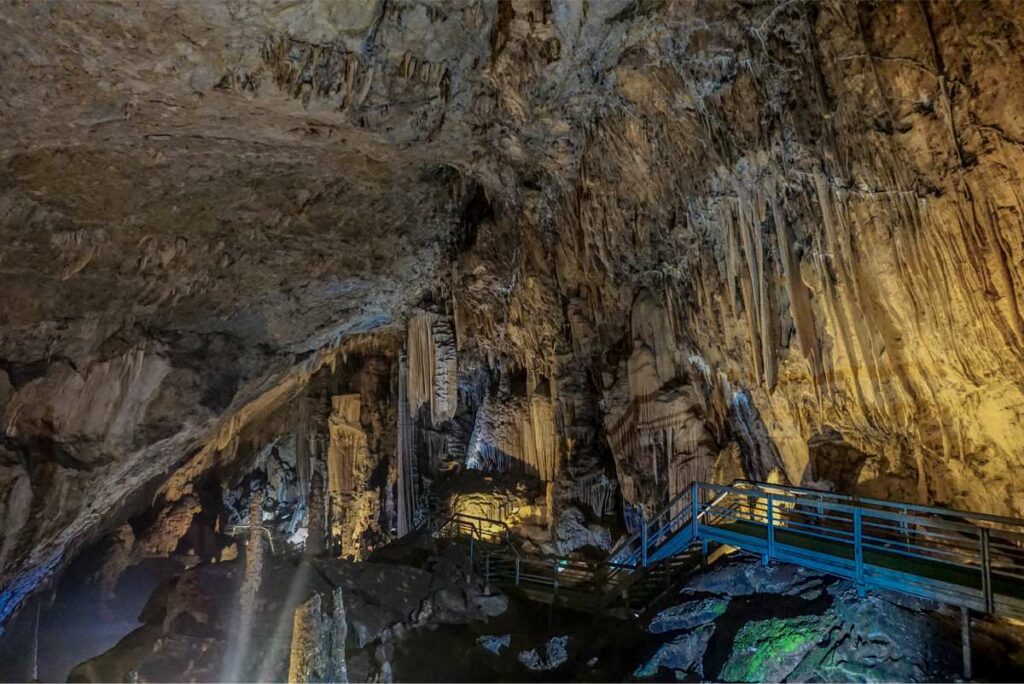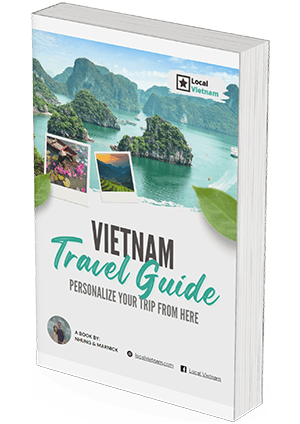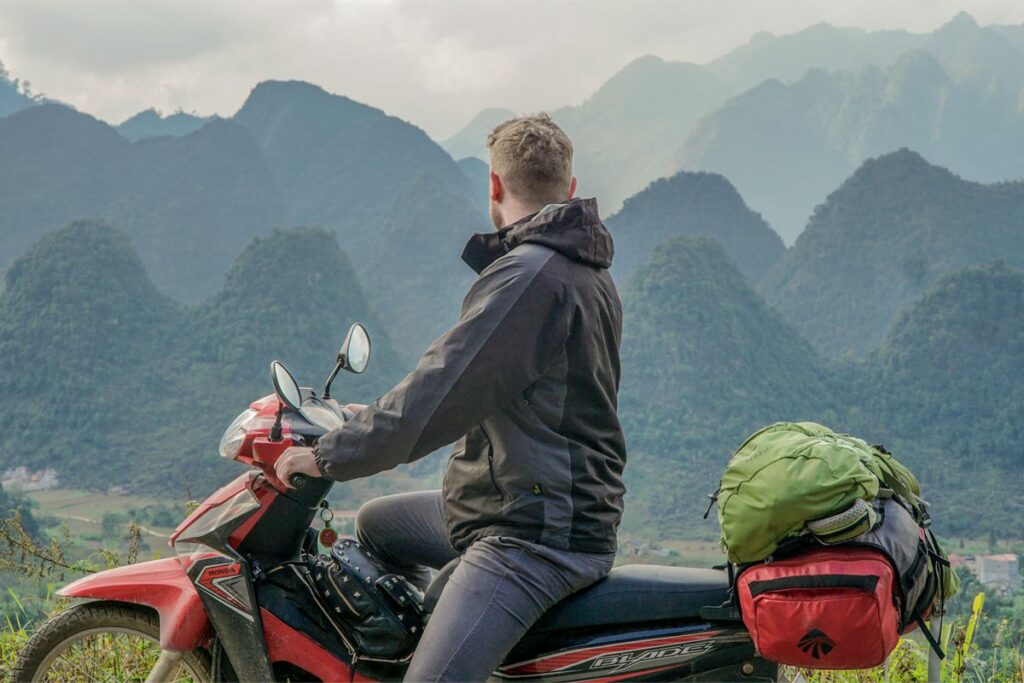What makes Lung Khuy Cave special
Lung Khuy Cave stands out as one of the best-developed caves in Ha Giang, offering safe, accessible walkways through a spectacular underground world. Inside, you’ll find striking geological formations—towering stalactites, unusual rock shapes, and small cave ponds that glisten in the dim light. It’s not just visually impressive; the cave provides a cool, refreshing escape on hot days, especially welcome during the warmer months on the Ha Giang Loop.
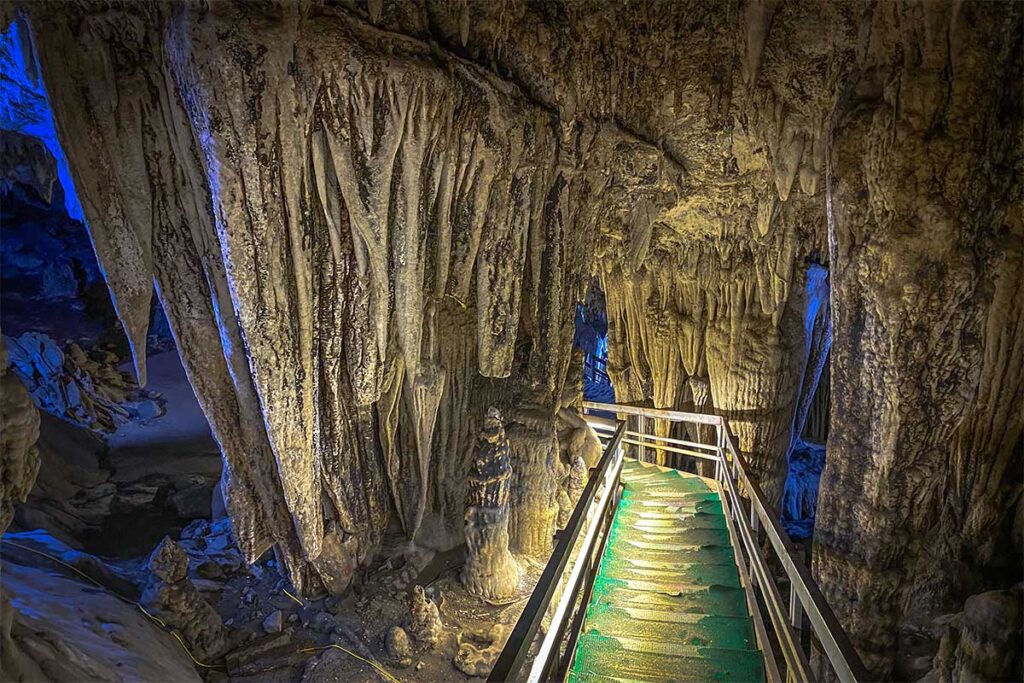
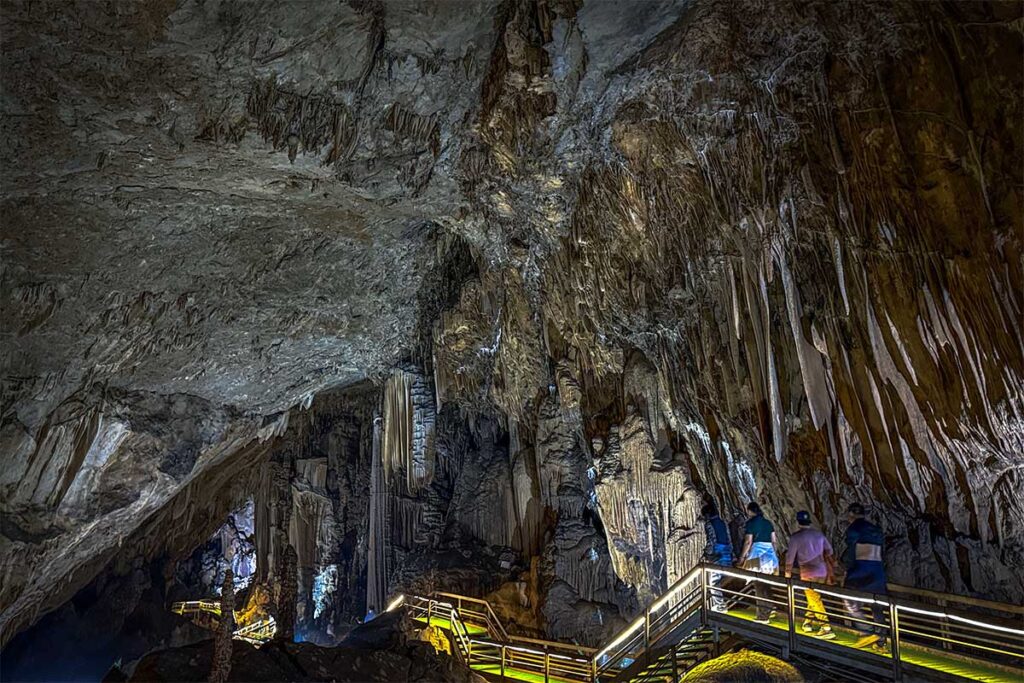
Opened to the public in 2015, Lung Khuy was carefully preserved and developed with the help of local authorities and UNESCO as part of the Dong Van Karst Plateau Global Geopark. Its infrastructure—metal walkways, basic lighting, and headlamps—ensures both safety and preservation. For travelers looking to experience Ha Giang’s geological beauty without venturing too far off route, Lung Khuy is an easy and rewarding stop.
How to get to Lung Khuy Cave
Step 1: From Ha Giang City to Tam Son (Quan Ba) – ~50 km
Lung Khuy Cave is located near Tam Son town in Quan Ba District, along the Ha Giang Loop. The drive from Ha Giang City to Tam Son is about 50 km and takes 1.5 to 2.5 hours depending on weather and stops you make along the way.
Most travelers visit by motorbike, Easy Rider, or private car. If you’re on a guided Ha Giang Loop tour, ask in advance to include Lung Khuy as an extra stop—especially if you’re doing a 4-day loop, which gives you enough time to explore areas between Ha Giang and Dong Van more thoroughly.
Add Lung Khuy Cave to your Ha Giang your
Lung Khuy Cave isn’t standard in most Ha Giang Loop tours, but we can easily include it in 4-day itineraries. Check our tours to see options with guides, transfers, and time to explore this scenic stop along the loop.
Step 2: Side road to the Cave Parking Area – ~4 km off QL4C
Just before reaching Tam Son from the south, take a small paved side road off QL4C. The turn is marked and located near a petrol station. Follow the winding mountain road for about 4 km until you reach the parking area. This road is narrow but scenic, passing through a quiet local village.
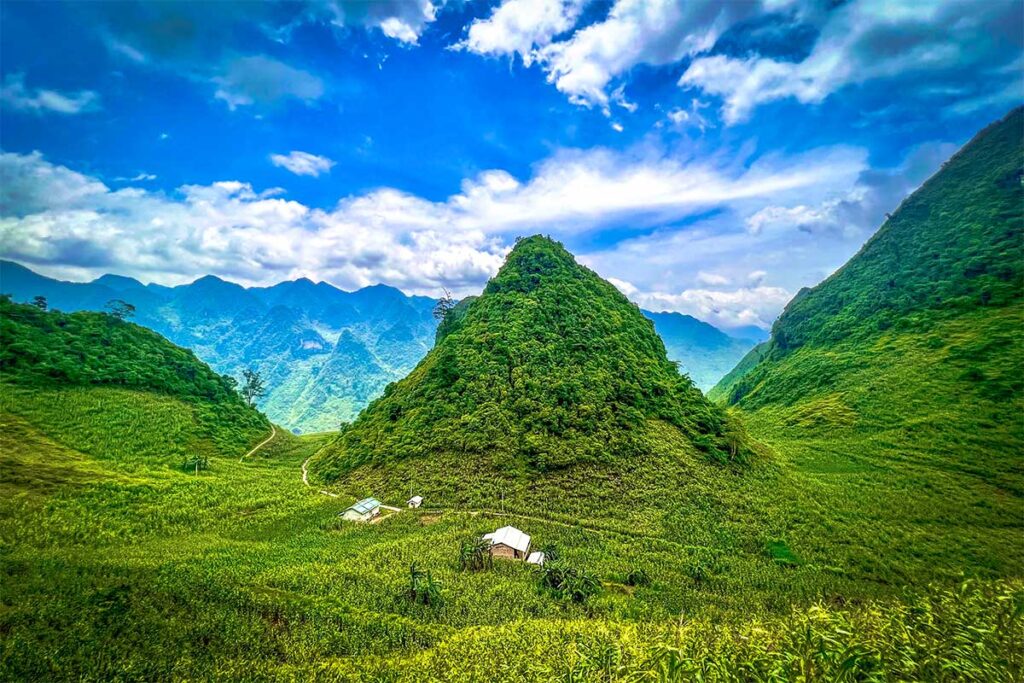
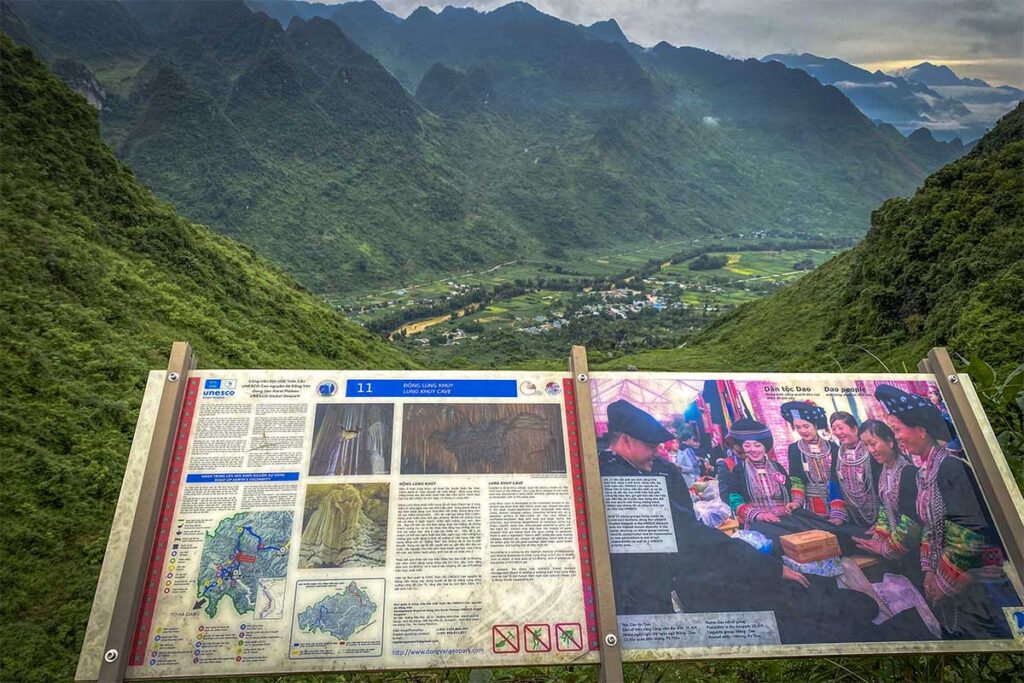
Step 3: Hike to the Cave Entrance – 1.2 km uphill trail
From the parking lot, a 1.2 km uphill walking trail leads to the cave entrance. The trail is a mix of steps and dirt paths, offering scenic mountain views and a shaded rest stop at a viewpoint halfway up. The walk can be a bit challenging in the heat, so bring water and take your time. Once at the top, you’ll find a small café, restrooms, and the ticket booth.
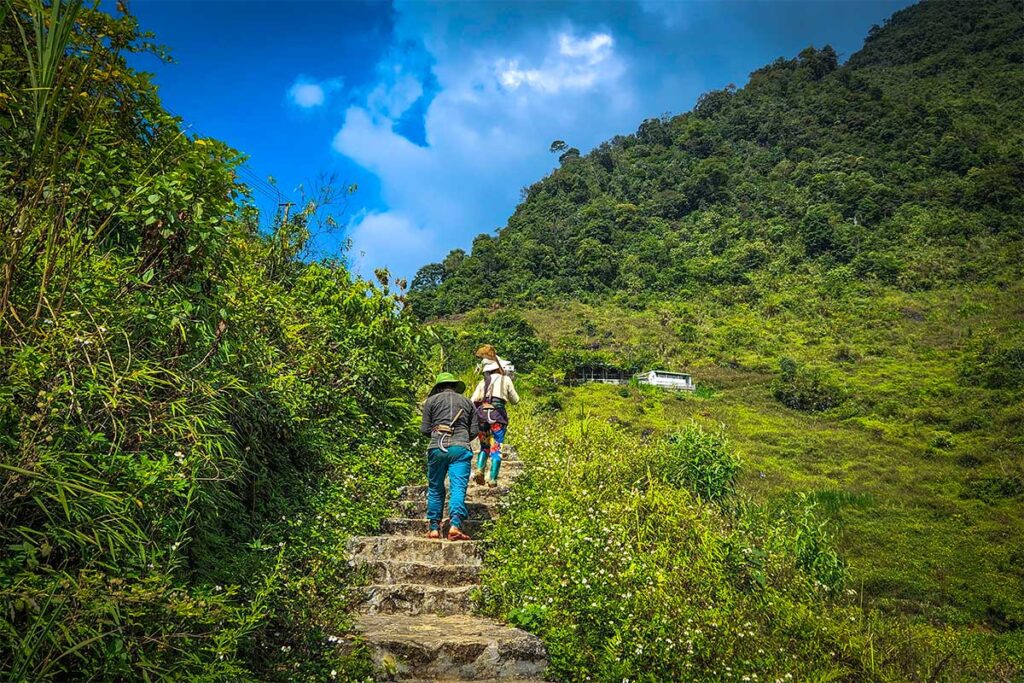
Visiting the cave
Entrance fee & facilities
At the top of the hiking trail, you’ll find a small ticket booth, basic toilets, and a simple café where you can rest before entering the cave. Entry costs 50,000 VND for adults and 20,000 VND for children. Kids under 6 and seniors over 60 often enter for free. A headlamp is included with your ticket in case the interior lighting is off—though the cave is usually well lit. Bring some cash, as there are no card facilities.
Inside the cave
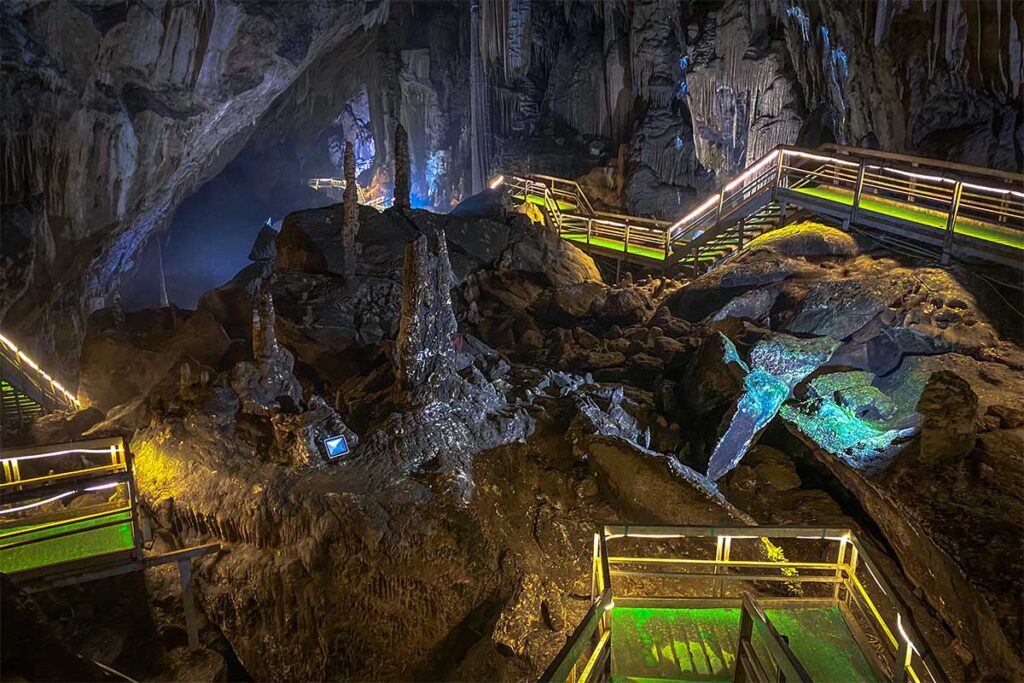
Lung Khuy Cave has been carefully developed for tourism, with solid metal walkways that guide you through about 300–400 meters of its interior. These raised paths make it easy to navigate and give you safe views of the towering stalactites, stalagmites, and other unique formations. The temperature inside stays pleasantly cool—making it a great escape from the afternoon heat. The walk through the cave typically takes around 20–30 minutes, depending on how long you pause for photos or observation.
Sacred water well & local legends
Deep within the cave is a small water well, said to hold sacred value among local Hmong communities. According to local folklore, the cave was once the dwelling of a dragon deity who brought water to the region during a historic drought. Each year, locals collect water here to bless the new year with good fortune and rain—adding a layer of cultural meaning to the natural beauty.
Tips for visiting
- Wear sturdy shoes – The 1.2 km hike includes uneven steps and some steep sections. Good footwear makes a big difference.
- Bring water – The climb can be tiring, especially on warm days. Stay hydrated.
- Visit in the morning – The uphill walk is more comfortable before midday heat sets in.
- Don’t touch stalactites – Oils from hands can damage their growth. Observe, don’t touch.
- Bring cash – The entrance fee, café, and any local products sold along the trail require cash.
- Optional café stop – The small café at the entrance is a good place to rest and enjoy the mountain view after your visit.
Is Lung Khuy Cave worth visiting?
Lung Khuy Cave is a worthwhile stop on the Ha Giang Loop if you have enough time and enjoy nature, geology, or simply taking a break from the motorbike. The ride to the cave is scenic, and the short hike adds a nice physical activity to balance out the long hours of driving. Inside, the cave is spacious and cool, with impressive stalactites and a peaceful atmosphere—not crowded or overdeveloped.
That said, it’s not a must-see on the same level as Ha Giang’s mountain passes or ethnic markets. If you’re doing the loop in just 3 days, it’s hard to justify the detour and time it takes. But if your itinerary includes a stay nearby—like Nam Dam Village or Yen Minh—it makes for a great side trip and adds variety to your journey.
Nearby attractions in Quan Ba
If you’re staying in the Quan Ba area or have time to explore beyond Lung Khuy Cave, there are several scenic and cultural highlights worth visiting nearby. These stops offer a mix of viewpoints, traditional village life, and local craftsmanship that can deepen your experience of the region.
This high mountain pass offers panoramic views over the surrounding valleys and is one of the iconic viewpoints on the Ha Giang Loop. It’s a great photo stop and marks the entrance to the Dong Van Karst Plateau Geopark.
Quan Ba Heaven Gate: This high mountain pass offers panoramic views over the surrounding valleys and is one of the iconic viewpoints on the Ha Giang Loop. It’s a great photo stop and marks the entrance to the Dong Van Karst Plateau Geopark.
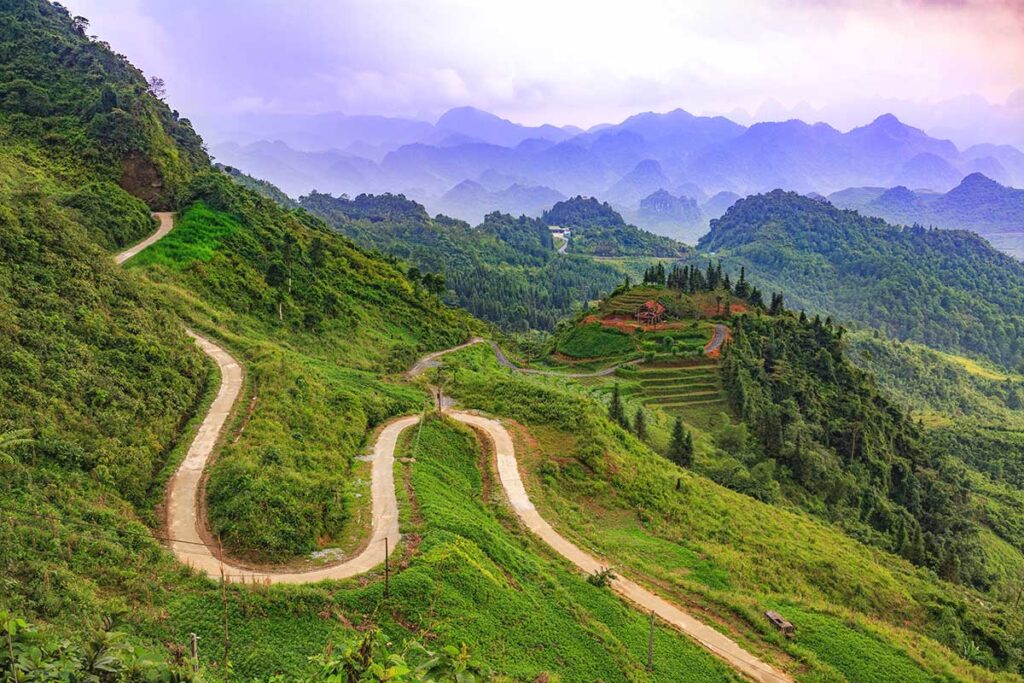
Twin Mountains (Fairy Bosom): Located just below Heaven Gate, these two perfectly rounded hills stand out in the middle of a rice field valley. Their unusual shape has inspired local legends and makes for a quick but memorable photo stop.
Nam Dam Village: A traditional Dao ethnic village known for its community-based tourism and stone-built houses. Staying here offers an authentic experience with local meals and insight into daily life.
Lung Tam Weaving Village: This village is home to a cooperative of Hmong women who create handwoven linen textiles using natural dyes and traditional methods. You can watch the process, buy handmade products, and support local crafts.
Weekly local markets: Quan Ba hosts rotating markets depending on the day of the week, where ethnic minority communities gather to trade goods, food, and textiles. These markets are colorful, lively, and a great window into local life—best visited in the morning.
